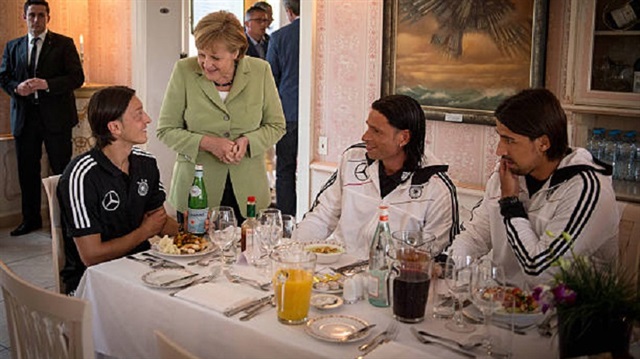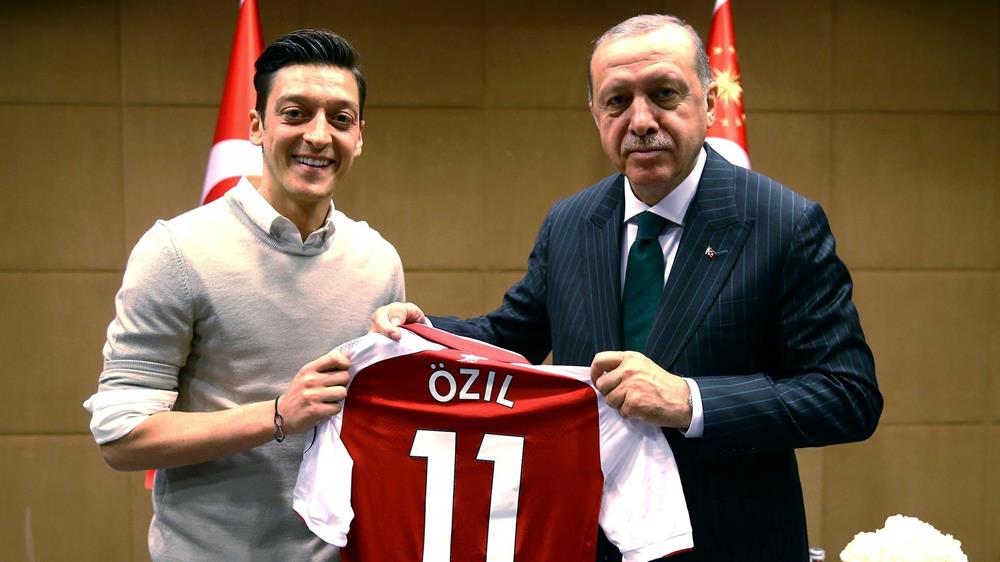

German Chancellor Angela Merkel talks to German National Team players Mesut Özil (L), Tim Wiese (C) and Sami Khedira during a shared dinner at the Euro 2012 Team Hotel on June 6, 2012 in Sopot, Poland.
If migrants in Germany believe that they are treated poorly in German society, this ‘must be taken seriously and discussed,’ says German Chancellor Angela Merkel
German Chancellor Angela Merkel stressed that poor treatment of migrants in Germany should be discussed, and touched on the debate sparked by German-Turkish footballer Mesut Özil with his decision to quit Germany’s national team due to the discrimination and racist propaganda he faced recently.
“I have a very clear stance on the matter. There may be differing views as to whether the photograph that was taken was right or wrong,” Merkel said.
Since May, Özil was criticized by German politicians and media outlets for meeting Turkish President Recep Tayyip Erdoğan and taking a photograph with him in London ahead of elections in Turkey.
Özil defended his meeting, and stressed that a picture with the Turkish president was not about politics, but respect to his family’s country.

“It was about me respecting the highest office of my family’s country. I am German when we win, but I am an immigrant when we lose,” Özil had said in a social media post.
“Be it Özil or someone else,” if migrants in Germany believe that they are treated poorly in German society, this “must be taken seriously and discussed,” Merkel stated.
Özil also accused far-right politicians and media for using his picture with Erdoğan “as an opportunity to express their previously hidden racist tendencies” ahead of June's football World Cup.
Germany’s President Frank-Walter Steinmeier echoed Merkel’s sentiments, and called on all citizens to stand up against racism and discrimination on Wednesday.
“There are no first and second class citizens. A permanent suspicion of migrants, no matter how long they’ve lived in Germany, isn’t only hurtful for the individual. It’s a cause of shame for our country,” he said to a small group of Turkish and German citizens who were invited to the presidential palace to voice their views on migration, integration, discrimination and racism in everyday life.
Some 19.3 million people out of 81.7 million in Germany are immigrants or their descendants, according to the federal statistics office.
People of Turkish origin continue to be the largest immigrant group in Germany with an estimated population of 2.8 million, followed by 2.1 million Poles and 1.4 million Russians.
#Turkey
#Germany
#Mesut Özil
#Angela Merkel
#Recep Tayyip Erdoğan


